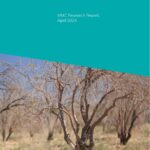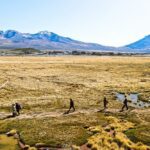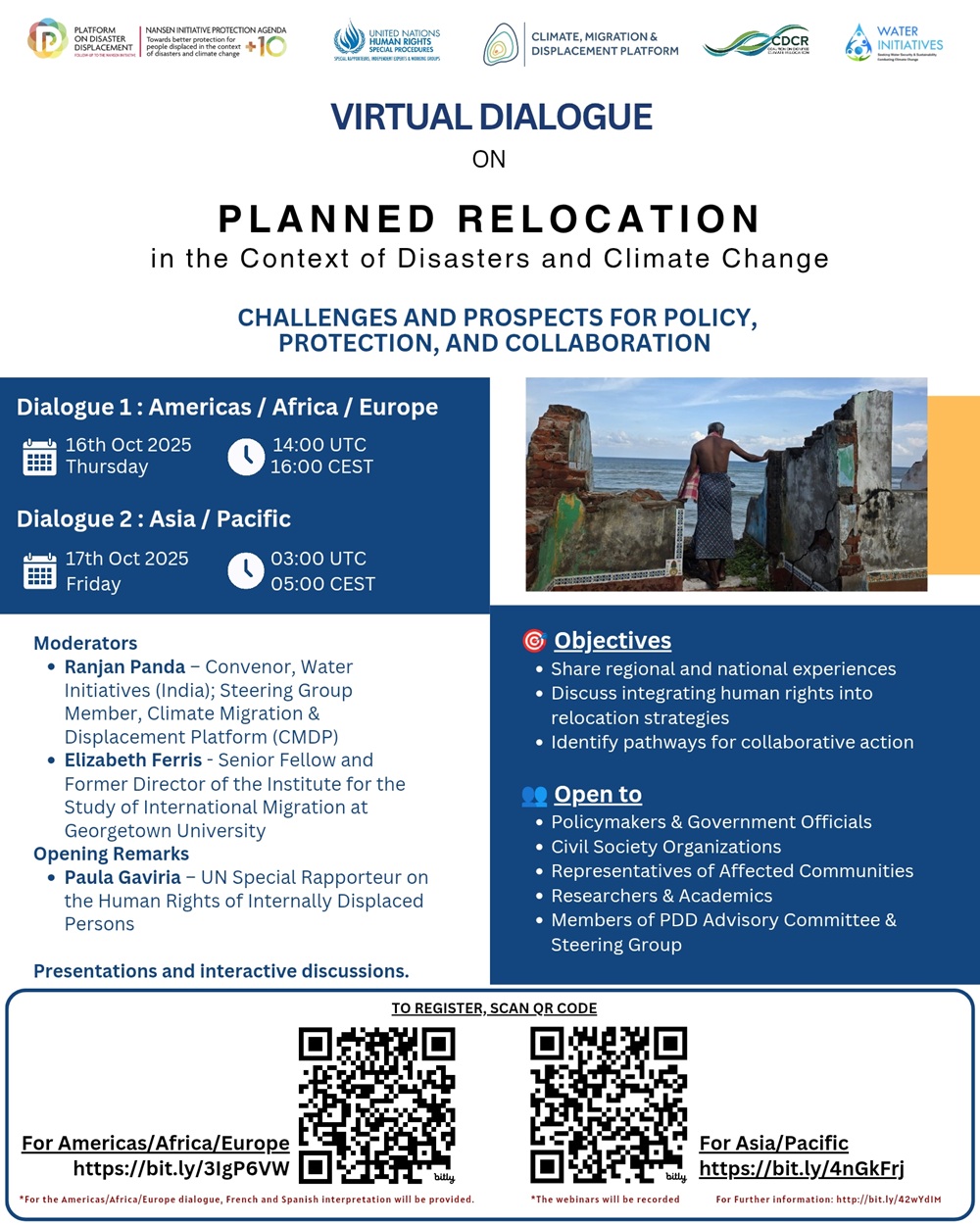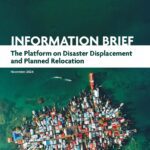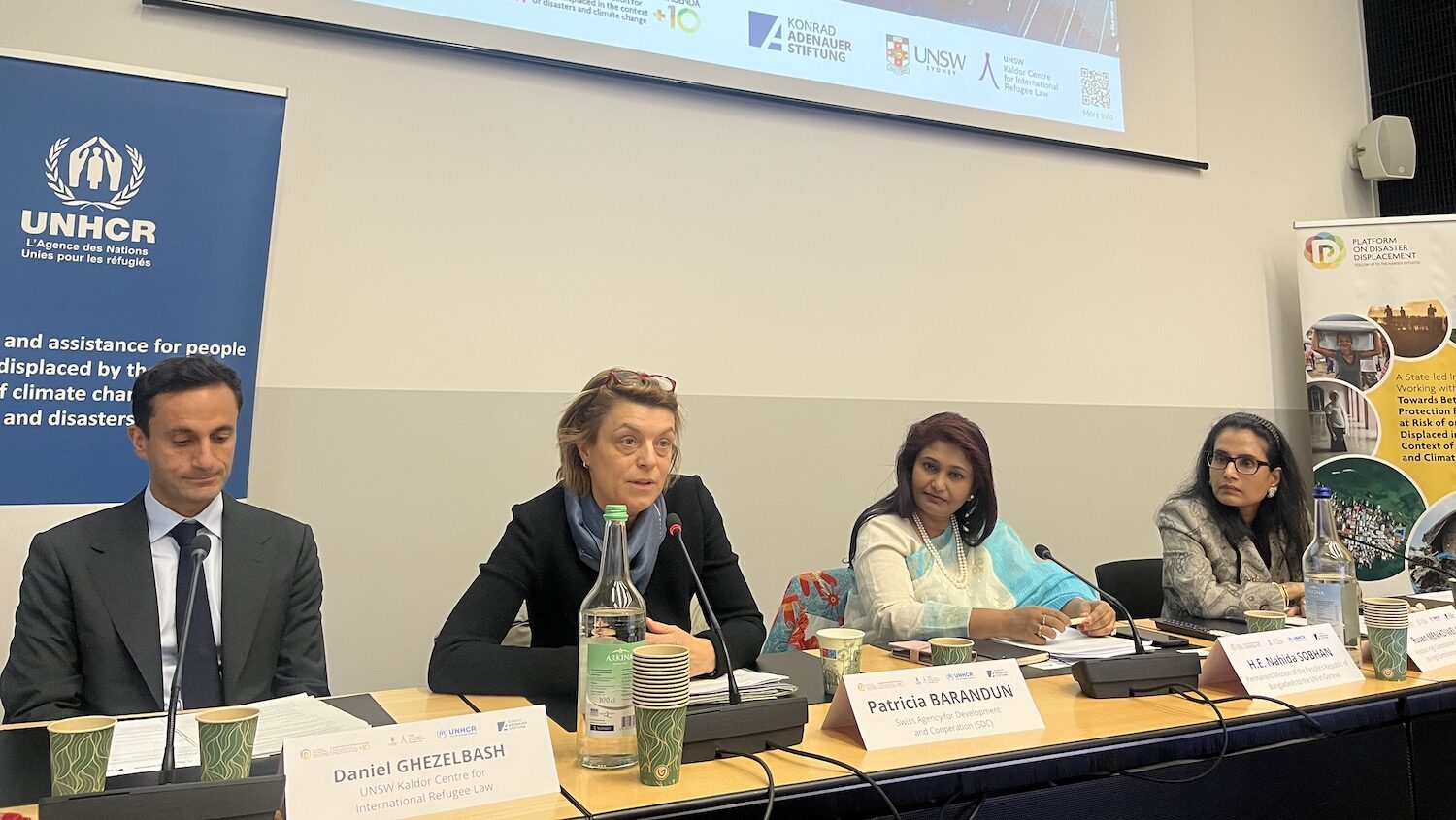Virtual Dialogues on Challenges and Prospects for Planned Relocation
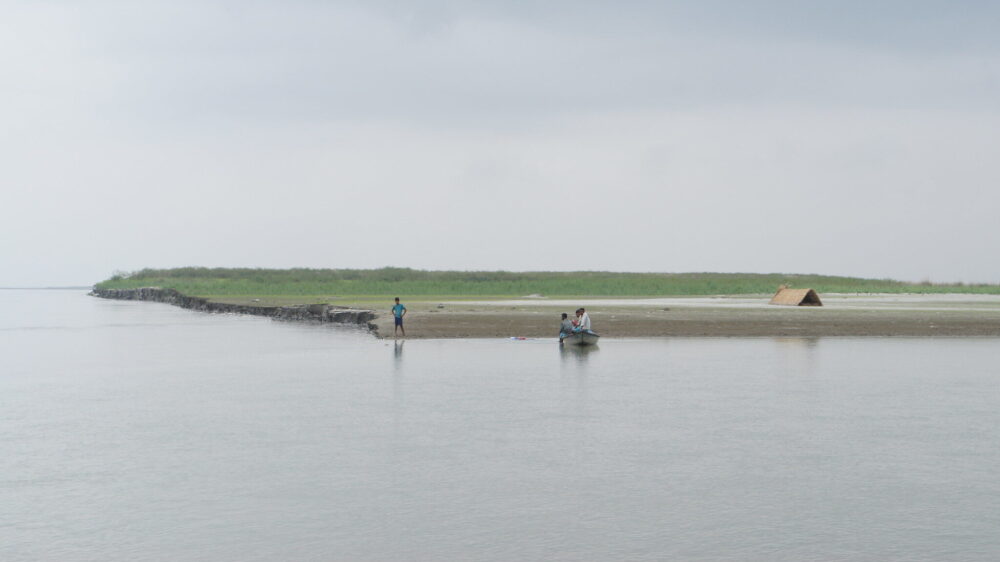
Online, 16-17 October 2025 – The Platform on Disaster Displacement (PDD), Water Initiatives, the Climate, Migration and Displacement Platform (CMDP), the Coalition on Dignified Climate Relocation (CDCR) and the Special Rapporteur on the Human Rights of Internally Displaced Persons are co-organizing virtual dialogues on challenges and prospects for planned relocation in the context of disasters and adverse effects of climate change on 16-17 October 2025. The session for Europe, the Americas and Africa will take place on 16 October 2025, 16:00 CET, participants can register here. The session for Asia Pacific will take place on 17 October 2025, 05:00 CET, participants can register here.
Background
Natural hazards, disasters and climate change profoundly affect people’s lives and livelihoods in all parts of the world. In some cases, adaptation limits are reached and entire communities have no choice but to move permanently out of harm’s way and into areas with lower exposure to disaster risks and climate impacts. Such processes of planned relocation can be either anticipatory or responsive. They can be initiated by communities or local/national authorities, and are generally considered a measure of last resort.
Planned relocation – a planned process in which persons or groups of persons move or are assisted to move away from their homes or places of temporary residence, are settled in a new location, and provided with the conditions for rebuilding their lives – is recognized in policy and practice as a tool for disaster risk reduction and climate change adaptation. At the same time, it is also a cause and consequence of loss and damage. If not well planned, resourced and conducted with community involvement and leadership, the process risks negatively impacting economic and non-economic aspects of people’s lives and threatening their human rights. If planned relocations are carried out, they must be voluntary, community-driven, planned and rights-based processes.
Policymakers, practitioners and communities need greater clarity and guidance around criteria to determine when planned relocation is an appropriate or necessary policy option in contexts of disasters and climate change, and how such relocation should be implemented. Opportunities for information sharing and learning from effective practices and experiences can contribute to filling these gaps so that planned relocation can be undertaken to minimize negative impacts and promote human rights and human dignity.
Amidst increasing discussion at the global, regional and national level of planned relocation as an important policy response in certain policy contexts, several conceptual, knowledge, policy and governance gaps remain. For example, its relationship with other types of human mobility, for example evacuation or resettlement, is often not clearly understood. Very few countries to date have developed policies, strategies, laws or tools or assigned institutional responsibility or funding to manage the process, and even fewer embed human rights principles.
Under its 2024-2030 Strategy, the Platform on Disaster Displacement (PDD) engages to support efforts to “enhance public policies on planned relocation” and specifically to “improve the use of planned relocation as a preventative or responsive measure to disaster/climate risk and displacement”. In its efforts to implement the Nansen Initiative Protection Agenda, since 2016, the PDD has always strived to support efforts on planned relocation.
Objectives
This Virtual Dialogue on challenges and prospects for planned relocation in the context of disasters and adverse effects of climate change will be co-organized by the PDD Secretariat, Water Initiatives, the Climate, Migration and Displacement Platform (CMDP), the Coalition on Dignified Climate Relocation (CDCR) and the Special Rapporteur on the Human Rights of Internally Displaced Persons.
It strives to allow for a sharing of experiences and the identification of effective practices on planned relocation, including regarding: i) the development of policies, laws or strategies, ii) funding mechanisms, iii) approaches for consultation and inclusion of communities in all stages of planned relocation processes, iv) practical operational strategies to minimize loss and damage and protect human rights. This event will be a part of the 10-year commemoration of the Nansen Initiative Protection Agenda (NIPA) to take stock of progress made and implementation since its endorsement in 2015.
The objectives of these multi-stakeholder dialogues on planned relocation are to:
- Exchange and learn from experiences with planned relocation in the context of disasters and the adverse effects of climate change, with a focus on policy/strategy development; formulation of tools and guidance; and funding instruments.
- Discuss challenges and opportunities for integrating the protection of human rights throughout (stand-alone or integrated) policies on planned relocation in the context of disasters and climate change.
- Identify joint regional and national collaboration opportunities for effective and inclusive action involving government officials, civil society actors, affected communities, and other stakeholders.
The target audience of this event will be stakeholders engaged in planned relocation processes, including government officials, civil society organizations, representatives from affected communities, academics, as well as all PDD Advisory Committee members and Steering Group members who would like to attend and contribute.
The Virtual Dialogue will be held in two different sessions, one allowing for the participation of an audience from the Americas, Europe and Africa region; and one allowing for the participation from Asia and the Pacific.
NIPA+10
In 2012, Norway and Switzerland launched the Nansen Initiative as a bottom-up, State-led, consultative process that intended to identify effective practices and build consensus on key principles and elements to address the protection and assistance needs of persons displaced across borders in the context of disasters, including the adverse effects of climate change. The Nansen Initiative culminated in the endorsement of the Agenda for the Protection of Cross-Border Displaced Persons in the Context of Disasters and Climate Change (Protection Agenda/NIPA) on 13 October 2015.
In 2025, there is an opportunity for the PDD and its partners, States and non-governmental stakeholders, to commemorate the Nansen Initiative and the 10-year anniversary of the NIPA and take stock of progress made since its endorsement and implementation since 2015. It is also an important opportunity to present the work done by the Platform on Disaster Displacement (PDD), seek renewed commitment to support the implementation of the NIPA and chart the way ahead. The current PDD Strategy, which includes a focus on public policies for planned relocation as a preventive or responsive measure for planned relocation, runs from 2024 until 2030, with the end year also marking the timeline to achieve the Sustainable Development Goals and implementation of the Sendai Framework for Risk Reduction.
2025 also marks the ten year anniversary of the publication of the “Guidance on Planned Relocation” by Brookings, UNHCR and Georgetown University.
Cover photo: EU/ECHO/Luc Verna

